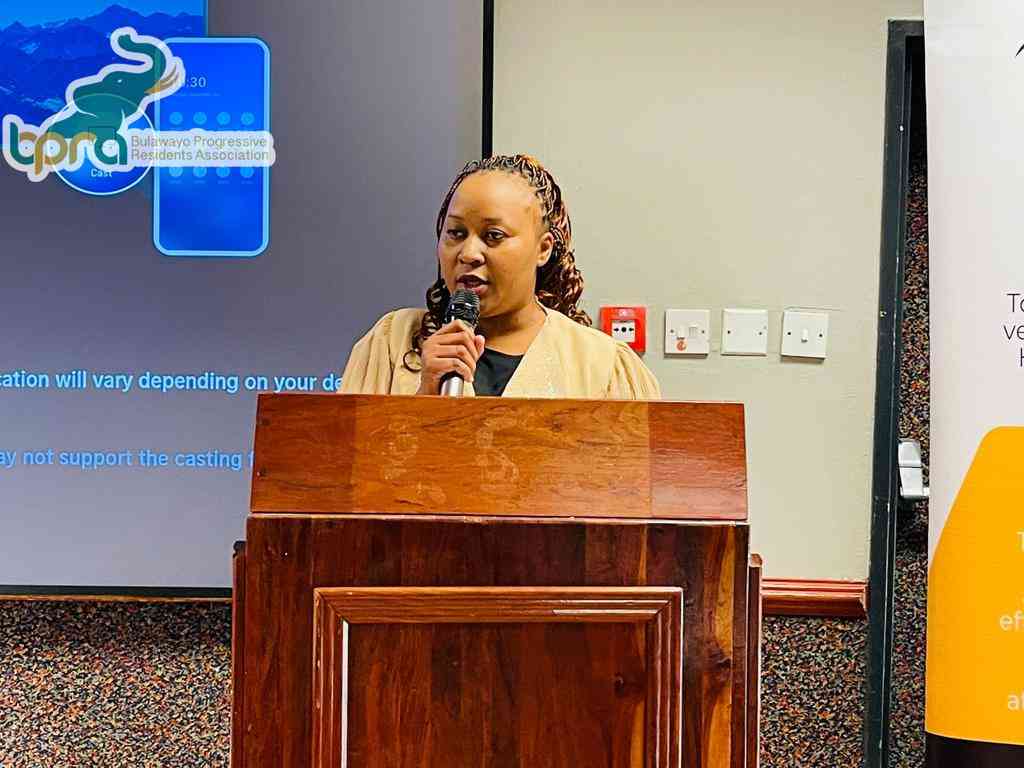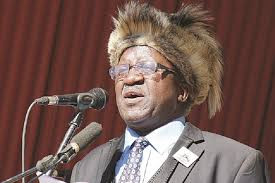
Bulawayo mayor David Coltart says finding solutions to the city’s multifaceted problems will not happen overnight as he laid out his council’s priorities for 2024.
Coltart, a former Education minister during the inclusive government under the later Robert Mugabe, was elected mayor of the country’s second largest city after the August harmonised elections.
His first few months in office have raised hopes that he has the capacity to turn around Bulawayo’s fortunes due to years of decay that have been blamed on central government’s interference in the affairs of the local authority and poor leadership by successive mayors.
Coltart told Sunday Southern Eye that there would be no quick fix to the various challenges the city is facing despite offering a glimmer of hope in his ambitious 2024 plan for Bulawayo.
The veteran lawyer said the road to turning around Bulawayo has to start with the revival of the city’s closed industries.
“That process has started, but we are a few years off,” Coltart said.
“However, we are reaching out to business people.
“We had very good meetings in South Africa where the first steps have been made to encourage primarily Zimbabweans in South Africa to invest back in their country.
- Outrage over school uniform prices
- Schools reopen amid deepening teacher crisis
- Village Rhapsody: Sanctions are not the reason Zim is in a mess
- Outrage over school uniform prices
Keep Reading
“Further meetings will take place in South Africa in February next year.”
Coltart said illegal vending was a major issue in the city that needed quick attention.
Bulawayo street pavements and roads have been taken over by illegal vendors, some of whom operate at the entrance of shop buildings.
The city council recently banned push carts used by the vendors from operating in the central business district.
A majority of the city's residents have turned to vending to make a living, but Coltart said there is a need to regulate informal trading for the city to attract investment.
“The first step taken to address it is the Egodini project and there has been substantial progress for the past two months with the hope of finishing phase one early and moving on to phase 1B early in the new year,” he said.
“When both of those are done 700 vending sites will be available.”
Coltart said there were over 1000 illegal vendors on 4th Avenue alone.
“So we have got to expand the number of vending sites beyond Egodini and that requires us to acquire more land and have structures in order to attract investors,” Coltart said.
“I think if we can make Egodini successful then people will at least see that a corner has been turned.
“It is a blow to our city with a very serious health hazard for informal traders being unable to trade properly.”
On water challenges, Coltart said he has not yet received any response from Local Government minister Winston Chitando on the city’s request to be declared a water crisis area.
Declaring Bulawayo a water crisis area will enable the local authority to seek funding for short to medium as well as long term interventions to the water crisis.
“The same letter asked the minister to urgently attend to the rehabilitation of the Nyamandlovu Epping Forest boreholes, which are running below 25% capacity and to construct a pipeline at Mtshabezi Dam that will increase water,” Coltart said.
“We have a very poorly designed pipeline from Mtshabezi, which delivers a fraction of the potential water that needs to be delivered.
“Fundamentally, we need to get consensus with the central government to that while Gwayi-Shangani Dam project is a medium to long term project there are other projects closer to the city, which need to be our priority that includes the duplication of Mtshabezi pipeline, the rehabilitation of Ncema water purification works, the doubling of capacity of Thuli reservoir and the construction of Glass Block Dam.
“When constructed it will have 70 percent more water capacity for Bulawayo.”
Coltart said electricity outages were also worsening the water crisis.
“One other reason why we have not been able to pump sufficient water volumes is due to fluctuations in Zesa power supplies, pumps cannot be switched on and off,” he said.
“This has a major disruptive factor on our ability to supply water to the city.
“Major decisions have to be taken by the government that include funding of some of these projects in order to alleviate the water situation in the city.”
Coltart recently led a Bulawayo clean-up campaign after city fathers complained that the city was now dirty,
Titled the "Big Spring Clean Up" campaign, the ambitious project aims to restore the city to its former glory by cleaning up THE CBD and suburban areas.
Bulawayo Progressive Residents Association secretary for administration Thembelani Dube said there was hope that Bulawayo can regain its past glory.
“We are still pinning our hopes that Bulawayo will retain its status of being the industrial capital one day,” Dube said.
“We have faith in the council spearheading the revival of the said industries.”
National Consumer Rights Association spokesperson Effie Ncube prayed for political will from the government to support Bulawayo’ turnaround efforts.
“Most importantly, the work ahead will require a whole of government approach beyond political rhetoric,” Ncube said.
The country’s second city faces recurrent water challenges with the local authority recently imposing a 120 hour water shedding regime up from 72 as supply dams run empty.
Bulawayo also faces urban decay with an unprecedented number of abandoned, neglected and derelict buildings in the central business district.
The country’s second city has gone for over two decades without any new infrastructural development in the CBD with the Bulawayo Centre shopping mall being the last after its construction in 2007.
The Bulawayo Centre shopping mall project, however, remains incomplete to date.
In 2017, council condemned 35 buildings as unfit and in need of urgent attention.
This followed the collapse of a building housing popular fast food outlet Nandos, killing one person.
Other planned projects such as redevelopment of Basch Street bus terminus popularly known as Egodini into a mall hang in balance.
Council awarded Terracotta Trading Limited a US$60 million tender in 2015 to undertake the Egodini mall project under a Build Operate and Transfer Facility.
Terracotta started working on the project in March 2018, but the project is yet to be complete.
In recent years, a number of companies have been either closing shop or relocating to other cities as de-industrialisation continues.
Bulawayo used to be referred to as the country’s industrial hub.
The city’s roads are also in a bad state.









